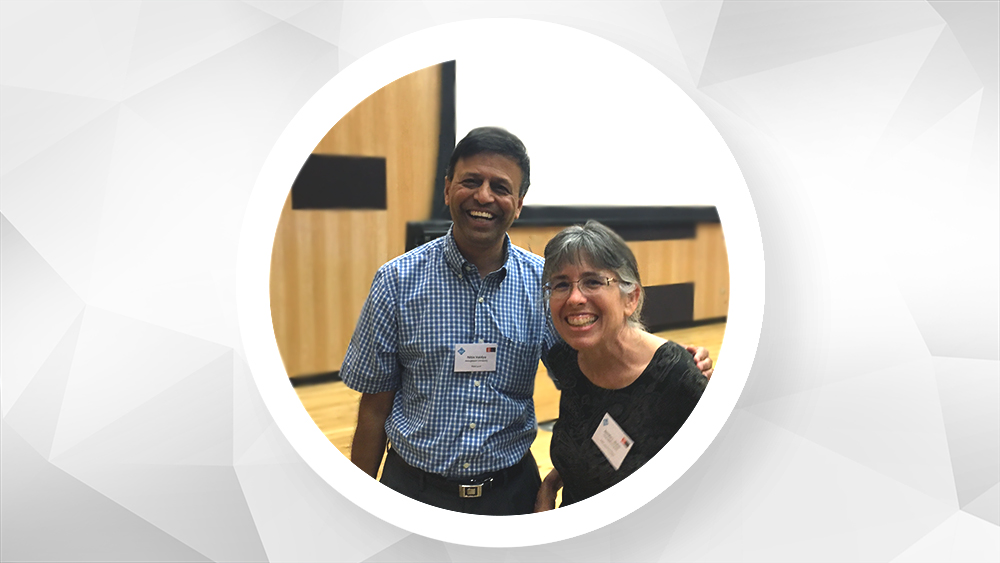
The Association for Computing Machinery (ACM) Symposium on Principles of Distributed Computing (PODC) has been an annual conference since 1982 and has grown to be one of the premier conferences on algorithms for distributed computation. They have a tradition of recognizing members of the PODC community on their 60th birthday through an event at the conference, and a “Jennifer Jubilee” was held at the conference in July to celebrate Dr. Jennifer Welch and her accomplishments. The jubilee was organized by her friends and colleagues Dr. Hagit Attiya (Technion, Israel), Dr. Faith Ellen (University of Toronto) and Dr. Nancy Amato (Texas A&M University). The conference was held at Royal Holloway University of London, United Kingdom.
“I am deeply honored to be recognized by my colleagues,” said Welch, Chevron Professor II and Regents Professor in the Department of Computer Science and Engineering at Texas A&M. “I greatly appreciate the mentoring, collaborations and friendships I have experienced in the distributed computing community, as well as all the dynamic problems we work on.”
The first speaker was her Massachusetts Institute of Technology (MIT) master's and doctoral advisor, Dr. Nancy Lynch. Lynch gave an overview of the research they did together, starting with her graduate work through more recent collaborations. These topics included transaction processing, modular methodologies for verifying complex algorithms and neighbor discovery in mobile networks.
“Jennifer was one of my first graduate students at MIT when I first started my Theory of Distributed Systems group,” said Lynch. “She and I worked closely together on projects involving clock synchronization, Byzantine agreement and formal verification of distributed algorithms.”
The second speaker was Dr. Shlomi Dolev of Ben-Gurion University, Israel, who was a postdoctoral fellow with Welch when she first arrived at Texas A&M in 1992. He focused on their joint work on clock synchronization in hostile environments and providing middleware for dynamic distributed systems. He also discussed the journey from self-stabilizing Byzantine schemes to GeoQuorums for ad hoc networks and the connections to distributed cryptographic schemes.
The third speaker was Dr. Nitin Vaidya of Georgetown University, who was Welch’s colleague at Texas A&M in the 1990s. He talked about their joint research on algorithms for distributed computation in mobile ad hoc networks, in particular, neighbor discovery, token circulation and mutual exclusion.
The last speaker was Attiya, a longtime collaborator. Attiya highlighted their work on finding differences in the inherent efficiency of implementing two popular consistency conditions for shared data. She also discussed working with Welch on their co-authored textbook, "Distributed Computing: Fundamentals, Simulations and Advanced Topics."
On her accomplishments, Welch said “It is exciting to find a clean abstraction of a problem motivated by real-world distributed systems and discover an efficient algorithm for it. Another mathematically fascinating aspect of my area is proving lower bounds on efficiency or impossibility for solving certain problems under certain assumptions. Although these results can be viewed as negative, they let you know whether your solution is optimal, in which case it is time to move on to another problem.”